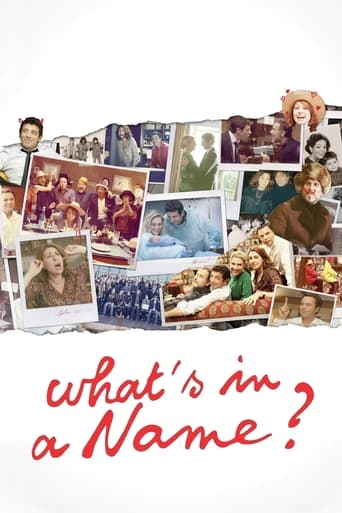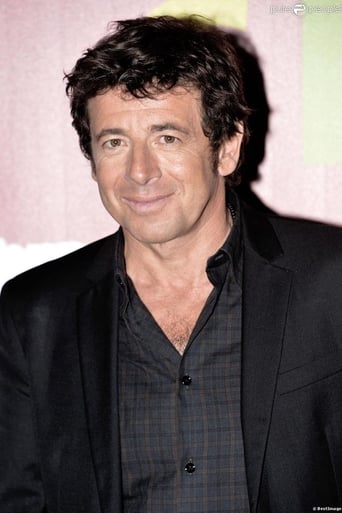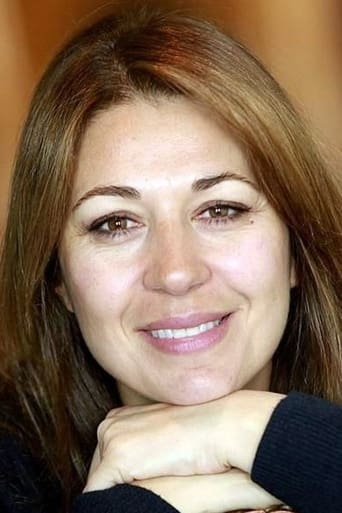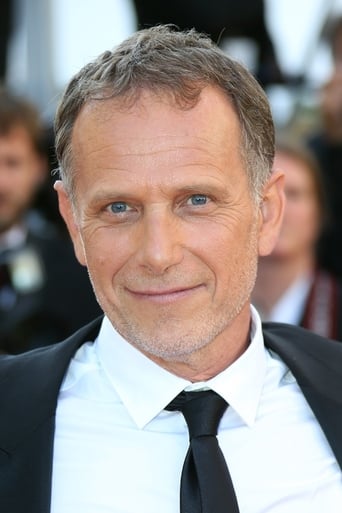

What's in a Name (2012)
Vincent, a wealthy real estate agent, is invited to dinner by his sister Elizabeth and her husband Peter, both professors in Paris. Claude, a childhood friend and trombonist in a symphony orchestra, is also present. Vincent brings news from the prenatal examination of his and his wife Anna's unborn son. The name chosen by the soon-to-be parents strongly offends the others for many reasons. The dispute between the guests quickly escalates and before long the resurgence of old grudges and hidden secrets is unavoidable ...
Watch Trailer
Cast


Reviews
The Three Acts: The initial tableaux: The film starts in the 9th arrondissement in Paris. Pierre and Élisabeth (called Babu by most) are hosting a small dinner party. The daughter and son hopefully will stay asleep. Babu's brother Vincent arrives, and draws interest in the name of his pre-natal son with his wife. Trombonist and long time family friend Claude joins the group. Considerably later, Vincent's wife Anna arrives.Delineation of conflicts: Vincent's choice for the son's name is quite offensive, and a debate rages over it. Much emotional heat is generated as a result; tempers warm more than a bit.Later, Vincent admits that the announced name was a joke, but the hurt feelings remain. Worse, the admission comes only after Vincent and Pierre have wounded each other with words. The group continues skewering each other with sharp speech.Resolution: Can the group resume their usual warm relationships? Several harsh buried truths surface during the verbal fencing.
I had a big smile on my face during the end credits because I thoroughly enjoyed this French movie from 2012! Yes, it's essentially a stage play, almost the entire film is set in the upper-middle class Parisian living room of the couple who have invited another couple and a single friend over for dinner. The dialogue is exceptional, the acting is superb (it's my understanding they performed this as a play with the same cast in Paris before making the film; this is why they seem so cohesive).Two of the cast members were known to me: Charles Berling and Patrick Bruel. Three of the cast members were new to me: Cesar winners Valerie Benguigui and Guillaume de Toncquedonc; and Judith El Zein (as Anna, Vincent's wife, who is very late arriving at the party, so she can reveal that they aren't really naming the baby Adolphe/Adolf, but rather Henri). Francoise Fabian has the small role of Vincent and the wife's (Babu) mother.I didn't like the film version of Carnage at all, and this film resembles it very closely. This one is MUCH better.I was surprised the film didn't feel static. It moved right along without any sagging. It's almost all talk but interesting talk. I would be interested in other plays by Matthieu Delaporte, who co-directed and co-wrote the screenplay.I love French cinema. It's a cinema of actors and dialogue more than cinematography. Films often look similar but feel different.The one suspenseful moment is that I thought Claude was going to declare his love for Babu. We are misled into thinking it's Anna he's having an affair with, but it's actually Francoise, the mother! Nice touch! Especially since everyone, including the audience, thinks he's gay! (:
A family is preparing to have a dinner party together in a French apartment. It is being hosted by Elisabeth (Valerie Benguigui) and Pierre (Charles Berling), while the first two guests are Vincent (Patrick Bruel), who is Elisabeth's brother, and Claude (Guillaume de Tonquedec), who is a childhood friend. Vincent arrives before his pregnant wife Anna (Judith El Zein) and one of the main discussions is what they will be naming their child. To create havoc Vincent elects to tell them a controversial name. His one small lie unleashes the fury of Pierre first and then numerous other arguments breakout, revealing each of their personalities but also some long buried family secrets and some unexpected conflicts and surprises. There are pleasures to be found in this minor French comedy, it just takes time to reflect on them. Adapted from a play, the film seems as though it lacks cinematic stylisation. The technical elements leave something to be desired because this is directors Alexandre de La Patelliere and Matthieu Delaporte's first feature film from Delaporte's own play. The film is set almost entirely in one area, which isn't new, but the camera is largely static and the actors stand around, waiting for their turn to speak. One of the saving graces for the film though is that the humour shifts between highbrow French culture and then gleefully embraces a silly side too. The film opens with the repeat images of people throughout French history being assassinated through the macabre route. This establishes the rather black rim that borders around the jokes. The film is about figurative character assassinations as people shoot each other down, based on their interests or their insecurities. Pierre and Vincent argue about the political incorrectness of the baby name he is said to have chosen, I guessed prematurely what it was, and then Vincent argues that he took it from a literary text and they fight over the spelling of the name. The dialogue is written with rare, microscopic details and then the humour and jokes broaden as the power plays between the characters shift. Vincent the instigator suddenly becomes the butt of people's jokes, like when they torment him about his facial expressions. Similarly, after being left out of conversations Elisabeth launches at Pierre over their domestic roles. Some of the setups are well-organised, particularly when Vincent is about to reveal that name because it gives a preemptive feel to the chaos that is about to erupt. The weakness of the film is that despite the comedy revealing character and being purposeful, as it should be, there aren't a lot of big laughs. I think this has to do with the film's low energy levels. At just under two hours the film feels very long when this setup has been performed much leaner in the past. The Roman Polanski film Carnage from last year had a very similar premise but it was thirty minutes shorter and felt more satisfying. It was funnier and had more memorable episodes that I can still remember today. Nonetheless, this is a comedy that is deceptively small, and more layered and verbally articulate than a lot of mainstream comedies.
Mix of Un Air de Famille by Klapisch and Carnage by Polanski, Le Prénom is clearly divided in two parts: the first is pure comedy oriented, whereas the second is more drama focused.The problem is that those two parts aren't homogeneous: the beginning is very good, dynamic, the dialogues fly, the humour is really present and the viewer is quickly sucked in. Unfortunately, the more the film progresses, the more the comical aspect is left aside, and the more the movie loses interest. The script goes thought bland and uninteresting passages, and we are served a dramatic aspect that isn't the most exciting one, which is disappointing in comparison to the thundering start.A fifteen minute cut, mostly from the second part, could have also improved the overall rhythm of the movie.Special mention to the cast who was very good and showed a great chemistry.




